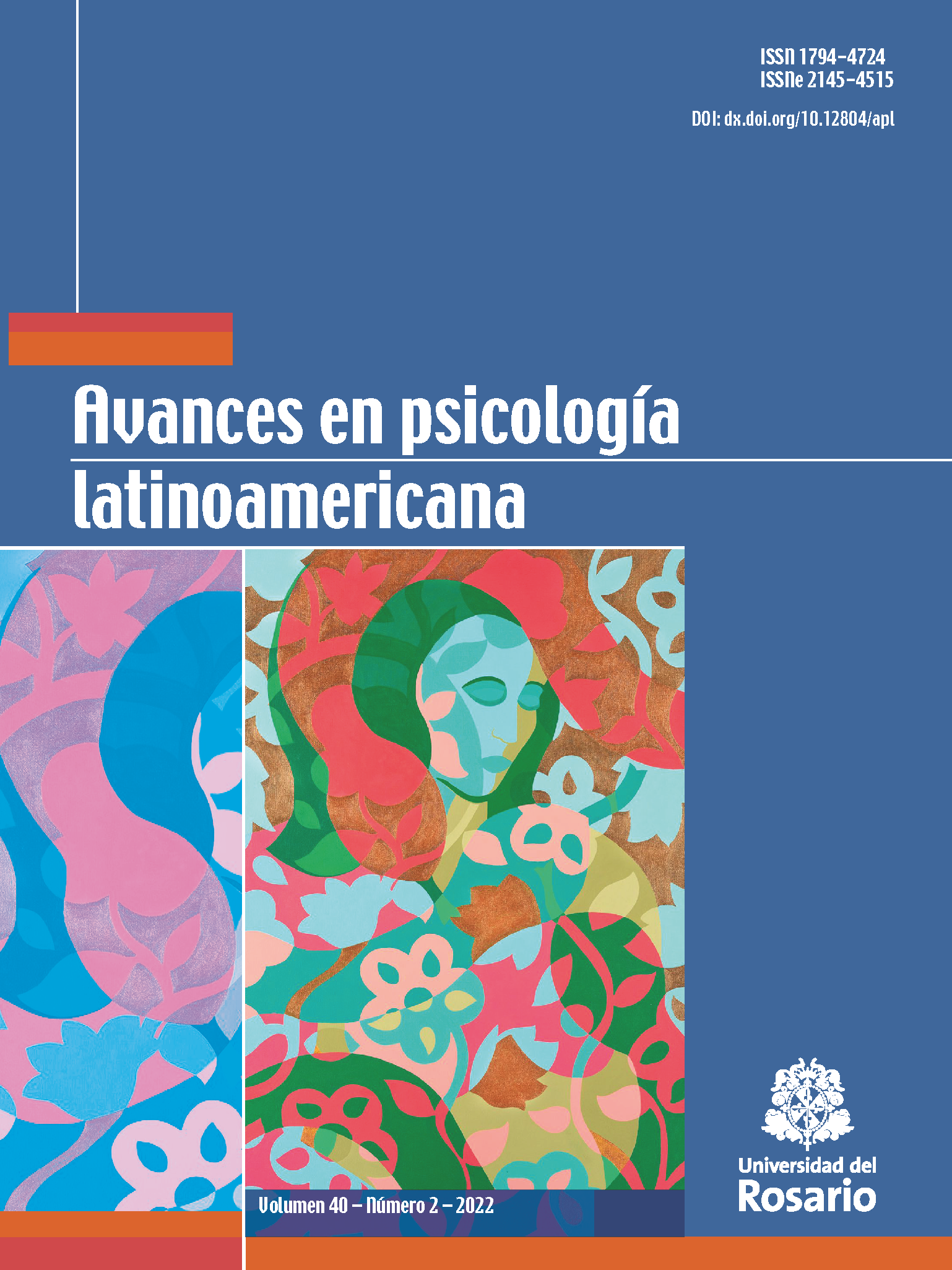Motivación para el trabajo voluntario: propuesta de un modelo integral
Barra lateral del artículo
Contenido principal del artículo
En Brasil los estudios sobre la motivación para el trabajo voluntario y sus matices siguen siendo escasos, mientras que en el extranjero se identifica una dificultad para el consenso teórico. Además, los estudios existentes a menudo no consideran los diferentes tipos de trabajo voluntario, las diferencias sociodemográficas y la importancia de las variables culturales en cada país. De ese modo, este estudio analizó las motivaciones para el voluntariado de 150 trabajadores brasileños, de diferentes organizaciones y con características demográficas variadas, con el objetivo de proponer un modelo integrado que reflejara tanto las peculiaridades de la realidad nacional como las recomendaciones de la literatura internacional. Los datos se analizaron cualitativamente a través del software IRAMUTEQ, que presentó cinco posibles clases léxicas o tipos de motivación para el trabajo voluntario: religioso, fraterno, altruista, transformador y personal. Por lo tanto, se espera ayudar a aumentar la comprensión del trabajo voluntario en Brasil, contribuyendo a la mejora de las políticas para atraer y mantener personas, y evaluar la calidad de los programas.
Descargas
Ligia Carolina Oliveira-Silva, Universidade Federal de Uberlândia
Psicologia Em Doutora Social Organizacional e do Trabalho Pela Universidade de Brasília. Professora do Instituto de Psicologia anexado da Universidade Federal de Uberlândia.
Araújo, M. M., & Coelho, M. P. (2019). Pedagogia social e trabalho voluntário: uma questão de solidariedade, ética e resistência. Revista Pedagogia Social UFF, 8(2). http://www.revistadepedagogiasocial.uff.br/index.php/revista/article/view/201
Bailey, C., Lips-Wiersma, M., Madden, A., Yeoman, R., Thompson, M., & Chalofsky, N. (2019). The five paradoxes of meaningful work: Introduction to the special issue ‘meaningful work: Prospects for the 21st century’. Journal of Management Studies, 56, 481-499. https://doi.org/10.1111/joms.12422
Bennett, J. R. (2015). The new volunteer manager’s toolkit. In R. J. Rosenthal (Ed.), Volunteer engagement 2.0: Ideas and insights changing the world (pp. 283-295). John Wiley & Sons. https://doi.org/10.1002/9781119154792.ch21
Brasil. (1998). Lei nº 9.608 de 1998. Dispõe sobre o serviço voluntário e dá outras providências. 18 de fevereiro de 1998. Diário Oficial da União – Seção 1 - 19/2/1998, página 2 (Publicação Original).
Briggs, E., Peterson, M., & Gregory, G. (2010). Toward a better understanding of volunteering for nonprofit organizations: Explaining volunteers’ pro-social attitudes. Journal of Macromarketing, 30(1), 61-76. https://doi.org/10.1177/0276146709352220
Caldas, P. T., Amorim, A. F., Vale, S. C., Cavalcante, C. E., & Dias, T. F. (2019). De onde vim? Para onde vou? O Terceiro Setor em João Pessoa/PB.Revista Desenvolvimento em Questão, 17(46), 333-356. http://dx.doi.org/10.21527/2237-6453.2019.46.333-356
Caprara, G. V., & Steca, P. (2007). Prosocial agency: The contribution of values and self-efficacy beliefs to prosocial behavior across ages. Journal of Social and Clinical Psychology, 26(2), 218-239. https://doi.org/10.1521/jscp.2007.26.2.218
Cavalcante, C. E. (2012). Motivação no trabalho voluntário: expectativas e motivos na Pastoral da Criança [Tese de doutorado, Universidade Federal do Rio Grande do Norte]. Repositório Institucional UFRN. https://repositorio.ufrn.br/handle/123456789/12075
Cavalcante, C. E. (2013). Motivação no trabalho voluntário: delineamento de estudos no Brasil. Revista Estudos do cepe, 38, 161-182. https://dx.doi.org/10.17058/cepe.v0i0.3719
Cavalcante, C. E., Souza, W. J., Cunha, A. S. R., Nascimento, M. A. A., & Fernandes, L. T. (2012). “Por que sou voluntário?”: etapa de construção de escala. Revista Pretexto, 13(2), 76-90. https://doi.org/10.21714/pretexto.v13i2.1168
Clary, E. G., Snyder, M., Ridge, R. D., Copeland, J., Stukas, A. A., Haugen, J., & Miene, P. (1998). Understanding and assessing the motivations of volunteers: A functional approach. Journal of Personality and Social Psychology, 74(6), 1516-1530. https://doi.org/10.1037/0022-3514.74.6.1516
Erasmus, B., & Morey, P. J. (2016). Faith-based volunteer motivation: Exploring the applicability of the volunteer functions inventory to the motivations and satisfaction levels of volunteers in an Australian faith-based organization. Voluntas: International Journal of Voluntary and Nonprofit Organizations, 27(3), 1343-1360. https://doi.org/doi:10.1007/s11266-016-9717-0
Estramiana, J. L. A., Pereira, C. R., Monter, M. R., & Zlobina, A. (2013). Valores sociais. In L. Camino, A. R. R. Torres, M. E. O. Lima & M. E. Pereira (Eds.), Psicologia social: temas e teorias (pp. 311-356). Technopolitik.
Ferreira, M., Proença, T., & Proença, J. F. (2008). As motivações no trabalho voluntário. Revista Portuguesa e Brasileira de Gestão, 7(3), 43-53. https://bibliotecadigital.fgv.br/ojs/index.php/rbpg/article/view/78898
Grönlund, H., Holmes, K., Kang, C., Cnaan, R., Handy, F., Brudney, J., Haski-Leventhal, D., Hustinx, L., Kassam, M., Meijs, L. C. P. M., Pessi, A. B., Ranade, B., Smith, K. A., Yamauchi, N., & Zrinščak, S. (2011). Cultural values and volunteering: A cross-cultural comparison of students’ motivation to volunteer in 13 countries. Journal of Academic Ethics, 9(2), 87-106. https://doi.org/10.1007/s10805-011-9131-6
Güntert, S. T., Wehner, T., & Mieg, H. A. (2022). Volunteer work from an international perspective. In S. T. Güntert, T. Wehner & H. A. Mieg (Eds.), Organizational, motivational, and cultural contexts of volunteering (pp. 45-59). Springer. https://doi.org/10.1007/978-3-030-92817-9_5
Hustinx, L., Cnaan, R., & Handy, F. (2010). Navigating theories of volunteering: A hybrid map for a complex phenomenon. Journal for the Theory of Social Behaviour, 40(4), 410-434. https://doi.org/10.1111/j.1468- 5914.2010.00439.x
Jiranek, P., Wehner, T., & Kals, E. (2015). Soziale Gerechtigkeit - ein eigenständiges Motiv für Freiwilligenarbeit. In T. Wehner & S. T. Güntert (Eds.), Psychologie der Freiwilligenarbeit (pp. 95-108). Springer. https://doi.org/10.1007/978-3-642-55295-3_6
Marra, A. V., Fonseca, J. A., & Marques, A. L. (2014). O processo de identificação organizacional ante à reforma administrativa: um estudo exploratório. Revista de Administração Mackenzie, 15(1), 49-72. https://doi.org/10.1590/S1678-69712014000100003
Mourão, L., Monteiro, A. C. F., & Viana, V. R. (2014). A influência do desenvolvimento profissional e da identificação organizacional na satisfação no trabalho. Psico, 45(2), 198-208. https://doi.org/10.15448/1980-8623.2014.2.13470
Müller, C. V., & Scheffer, A. B. B. (2019). Life and work issues in volunteer tourism: A search for meaning? Revista de Administração Mackenzie, 20(1). https://doi.org/10.1590/1678-6971/eRAMG190095
Oliveira, L. B., & Costa, F. P. C. (2016). Motivação, satisfação e comprometimento: um estudo sobre o trabalho voluntário em megaeventos esportivos. Economia & Gestão, 16(42), 89-116. https://doi.org/10.5752/P.1984-6606.2016v16n42p89
Organização das Nações Unidas. (2003). Handbook on non-profit institutions in the system of national accounts. United Nations. https://unstats.un.org/unsd/publication/SeriesF/SeriesF_91E.pdf
Pereira, H., & Cavalcante, C. (2018). Medalha de ouro! Estudo sobre motivação no trabalho voluntário eventual nos Jogos Olímpicos no Rio de Janeiro. Revista Organizações Em Contexto, 14(28), 177-206. http://dx.doi.org/10.15603/19828756/roc.v14n28p177-206
Piccoli, P., & Godoi, C. K. (2012). Motivação para o trabalho voluntário contínuo: uma pesquisa etnográfica em uma organização espírita. Organizações & Sociedade, 19(62), 399-415. https://doi.org/10.1590/S1984-92302012000300002
Randle, M., & Dolnicar, S. (2015). The characteristics of potential environmental volunteers: Implications for marketing communications. Australian Journal of Environmental Management, 22(3), 329-339. http://dx.doi.org/10.1080/14486563.2014.976848
Rodell, J. B. (2013). Finding meaning through volunteering: Why do employees volunteer and what does it mean for their jobs? Academy of Management Journal, 56, 1274-1294. https://doi.org/10.5465/amj.2012.0611
Salamon, L. M., & Anheier, H. K. (1996). The international classification of non-profit organizations: icnpo revision 1. The Johns Hopkins Institute for Policy Studies.
Salazar, K. A., Silva, A. R. L., & Fantinel, L. D. (2015). As relações simbólicas e a motivação no trabalho voluntário. Revista de Administração Mackenzie, 16(3), 171-200. http://dx.doi.org/10.1590/1678-69712015/administracao.v16n3p171-200
Silva, R. D., & Macêdo, K. B. (2022). Trabalho voluntário: uma revisão. Brazilian Journal of Health Review, 5(2), 7947-7960. 10.34119/bjhrv5n2-344
Schwartz, S. H. (1992). Universals in the content and structure of values: Theoretical advances and empirical tests in 20 countries. In M. P. Zanna (Ed.), Advances in experimental social psychology (pp. 1-66, vol. 25). Academic Press. https://doi.org/10.1016/S0065-2601(08)60281-6
Schwartz, S. H., Cieciuch, J., Vecchione, M., Davidov, E., Fischer, R., Beierlein, C., Ramos, A., Verkasalo, M., Lönnqvist, J. E., Demirutku, K., Dirilen-Gumus, O., & Konty, M. (2012). Refining the theory of basic individual values. Journal of Personality and Social Psychology, 103(4), 663-688. https://doi.org/10.1037/a0029393
Sell, C. E. (2012). Racionalidade e racionalização em Max Weber. Revista Brasileira de Ciências Sociais, 27(79), 153-172. https://doi.org/10.1590/S0102-69092012000200010
Souza, L. F., & Costa, H. G. 2013, (20-22 de junho). Motivação para o voluntariado: uma análise de sua evolução na literatura. Anais do ix Congresso Nacional de Excelência em Gestão, Rio de Janeiro, Brasil. https://www.inovarse.org/artigos-por-edicoes/IX-CNEG-2013/T13_0621_3794.pdf
Souza, W. J., & Medeiros, J. P. (2012). Trabalho voluntário: motivos para sua realização. Revista de Ciências da Administração, 14(33), 93-102. http://dx.doi.org/10.5007/2175-8077.2012v14n33p93
Stukas, A. A., Hoye, R., Nicholson, M., Brown, K. M., & Aisbett, L. (2016). Motivations to volunteer and their associations with volunteers’ well-being. Nonprofit and Voluntary Sector Quarterly, 45(1), 112-132. https://doi.org/10.1177/0899764014561122
Tajfel, H., & Turner, J. C. (1979). An integrative theory of intergroup conflict. In S. Worchel & W. G. Austin (Eds.), The social psychology of intergroup relations (pp. 33-47). Brooks/Cole.
Wehner, T., & Güntert, S. T. (2015). Psychologie der Freiwilligenarbeit. Springer. Yeung, A. B. (2004). The octagon model of volunteer motivation: Results of a phenomenological analysis. Voluntas: International Journal of Voluntary and Nonprofit Organizations, 15, 21-46. https://doi.org/10.1023/B:VOLU.0000023632.89728.ff
Ziemek, S. (2006). Economic analysis of volunteers’ motivations: A cross-country study. The Journal of Socio-Economics, 35(3), 532-555. https://doi.org/10.1016/j.socec.2005.11.064
Detalles del artículo

Esta obra está bajo una licencia internacional Creative Commons Atribución-NoComercial-SinDerivadas 4.0.
Los autores conservan los derechos de autor y garantizan a la revista el derecho de ser la primera publicación del trabajo al igual que licenciado bajo una Creative Commons Attribution License que permite a otros compartir el trabajo con un reconocimiento de la autoría del trabajo y la publicación inicial en esta revista.








